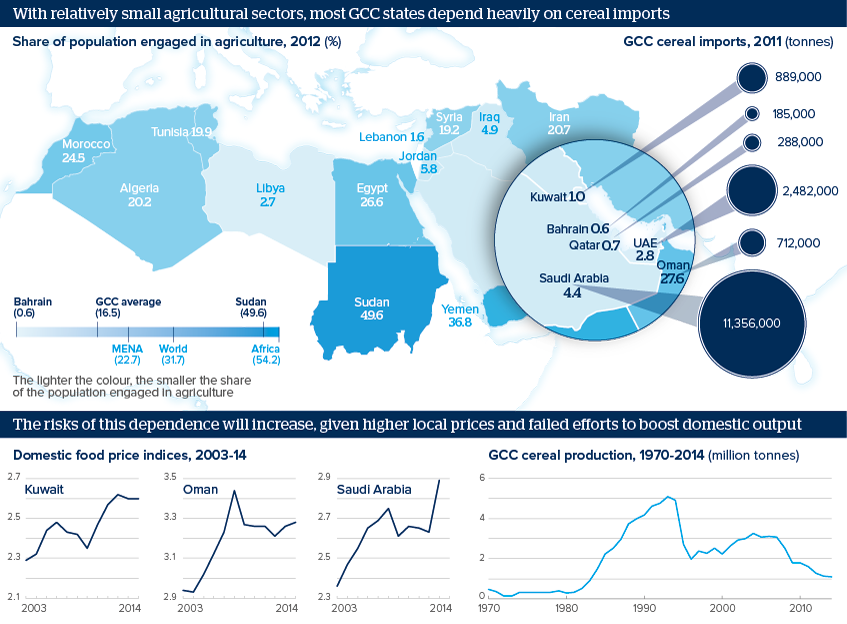Gulf states' food imports will rise
Water constraints mean that Gulf countries have no option but to buy in food
Source: Food and Agriculture Organization
Outlook
The countries of the Gulf Cooperation Council (GCC) have limited potential to expand agricultural production, given their arid environment. Even Oman, the only one of the six with a substantial farming sector, faces significant problems of water depletion. Rising populations will, therefore, lead to increasing demand for food imports.
Governments will seek to promote food security by purchasing larger tracts of land abroad, despite mixed results from this practice in the past. Food subsidies will become more expensive to maintain, but may remain in place, at least for citizens, as part of the political compact.
Even without agricultural production, water depletion will be a growing problem. Additional expensive desalination plants are likely to be established.
Impacts
- Gulf 'land-grabs' in Africa and elsewhere will cause local controversy, and could face rising political challenges.
- More desalination plants will have a negative impact on the marine environment in the Gulf.
- In the post-oil future, GCC countries will have to find additional sources of foreign exchange to pay for necessary food imports.
See also
- Gulf countries will seek food security bilaterally - Jun 15, 2020
- Sugar price spikes will continue to worry importers - Dec 21, 2016
- Gulf oil dependency poses long-term stability risk - Oct 28, 2015
- More graphic analysis
